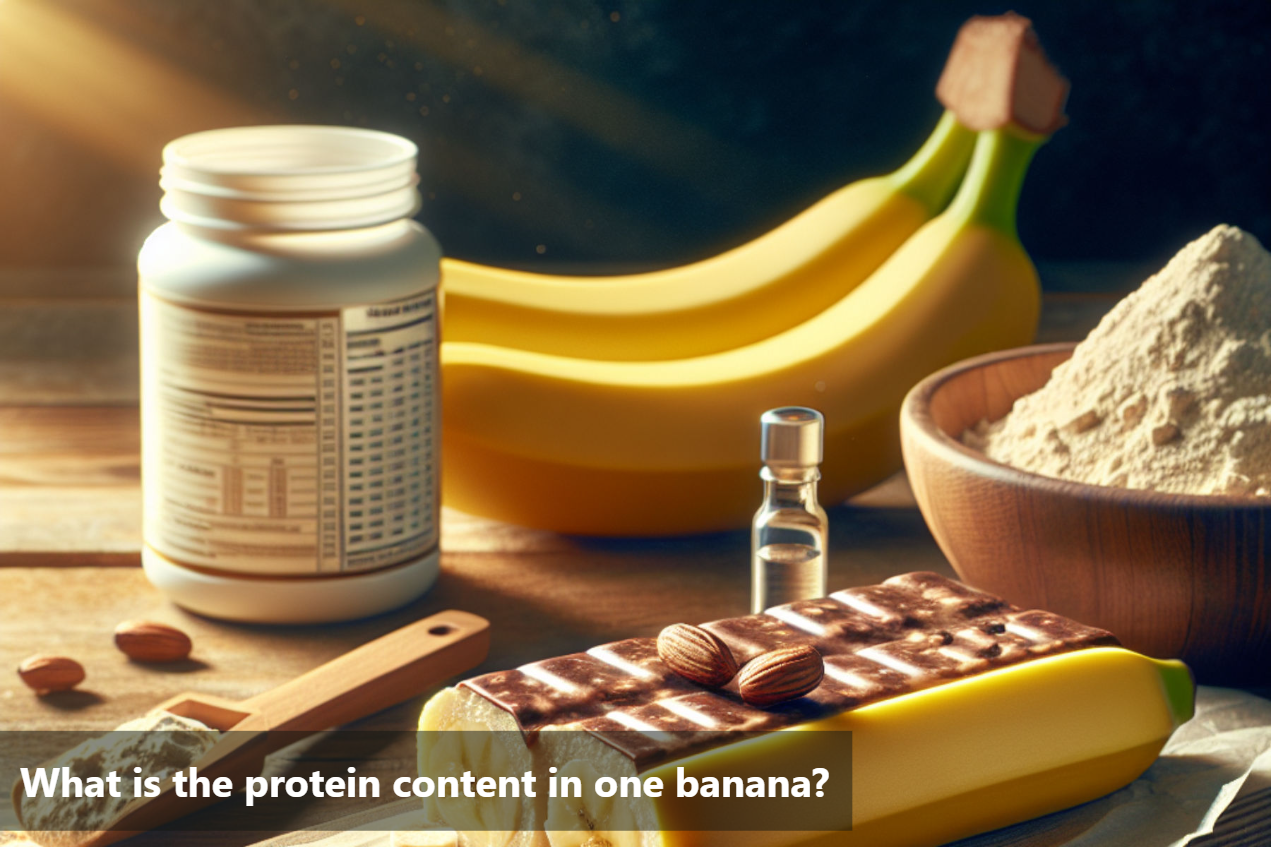
What is the protein content in one banana?
Bananas are not only a popular fruit but also a good source of various nutrients, including protein. While protein may not be the first nutrient that comes to mind when thinking about bananas, it plays a vital role in the overall nutritional content of this fruit.
Protein in bananas is often overlooked, but it is essential for various bodily functions. Understanding the protein content in bananas can help individuals make informed dietary choices and ensure they meet their daily protein requirements. A single banana typically contains around 1-1.5 grams of protein, which may vary slightly based on the size of the fruit.
By shedding light on the protein content in bananas, individuals can appreciate the holistic nutritional value of this fruit beyond just carbohydrates and sugars. Incorporating bananas into a balanced diet can contribute to overall health and well-being, making it essential to recognize the protein content in one banana for a more informed and health-conscious approach to nutrition.
Nutritional Benefits of Bananas
The nutrition facts for 1 medium-sized banana (100 grams) are:
|
Calories |
89 |
|
Water |
75% |
|
Protein |
1.1 grams |
|
Carbs |
22.8 grams |
|
Sugar |
12.2 grams |
|
Fiber |
2.6 grams |
|
Fat |
0.3 grams |
|
Vitamin B6 |
25% of the DV |
|
Vitamin C |
11% of the DV |
|
Manganese |
14% of the DV |
|
Potassium |
12% of the DV |
|
Folate |
6% of the DV |
|
Riboflavin (vitamin B2) |
5% of the DV |
Ways to Incorporate Bananas for Protein Intake
Incorporating bananas into your diet is not only delicious but can also be a great way to boost your protein intake. Let's explore some creative and tasty ideas on how to include bananas in your meals and snacks to ensure you're getting a well-rounded diet.
-
Banana Protein Smoothie: Blend a ripe banana with a scoop of protein powder, milk or yogurt, and a handful of spinach for a nutritious and protein-packed smoothie that is perfect for breakfast or post-workout fuel.
-
Banana and Nut Butter: Pairing sliced bananas with nut butter like almond or peanut butter makes for a satisfying and protein-rich snack. The combination of creamy nut butter and sweet banana is a classic favorite.
-
Banana Protein Pancakes: Mix mashed bananas into your pancake batter along with protein powder to create fluffy and flavorful pancakes that are not only delicious but also high in protein.
-
Banana Greek Yogurt Parfait: Layer sliced bananas with Greek yogurt, granola, and a drizzle of honey for a protein-packed parfait that can be enjoyed as a nutritious breakfast or a satisfying dessert.
-
Banana Chia Seed Pudding: Combine mashed bananas with chia seeds, almond milk, and a hint of vanilla for a creamy and protein-rich pudding that can be a great snack or dessert option.
By incorporating bananas into these creative recipes and ideas, you can easily increase your protein intake while enjoying the many nutritional benefits this versatile fruit has to offer.
Health Benefits
-
Rich source of essential nutrients like potassium, vitamin C, and vitamin B6.
-
High fiber content promotes digestive health and aids in regular bowel movements.
-
Natural energy booster due to its carbohydrate content, making it a great pre or post-workout snack.
-
Potassium helps regulate blood pressure and supports heart health.
-
Contains antioxidants that may reduce inflammation and lower the risk of chronic diseases.
-
Helps replenish electrolytes lost during sweating, aiding in hydration.
-
Supports weight management due to its low calorie and high fiber content, promoting satiety.
-
Contains tryptophan, a precursor to serotonin, promoting mood regulation and relaxation.
-
May improve kidney health and reduce the risk of kidney stones due to its potassium content.
-
Easily portable and convenient, making it a quick and nutritious snack option.
Investigating the Protein Content of a Banana
Including bananas in your daily meals can complement your protein intake from other sources, creating a well-rounded and nutritious diet. Whether enjoyed on their own as a convenient snack or added to smoothies, oatmeal, or yogurt bowls, bananas present a versatile and delicious way to boost your overall nutrient intake.
Incorporating bananas into your diet can be a simple yet effective way to enhance your protein consumption while reaping the numerous health benefits this fruit offers. So, next time you reach for a snack, consider grabbing a banana to not only satisfy your cravings but also contribute to your protein intake and support your journey towards better health and wellness.
FAQs
-
Is a banana a good source of protein?
While bananas are not considered a high-protein food, they can still contribute to your daily protein intake.
-
Can bananas be included in a protein-rich diet?
Yes, bananas can be part of a balanced diet that includes other protein-rich foods.
-
Are there other sources of protein that are higher than bananas?
Yes, there are many foods like meat, fish, dairy, legumes, and nuts that are higher in protein content compared to bananas.
-
How can I increase protein intake using bananas?
You can pair bananas with protein-rich foods like nut butter, Greek yogurt, or protein shakes to increase your overall protein intake.
This Blog post is an initiative by Lo! Foods, to provide accurate and Nutritionist / Doctor approved information related to Health. Lo! Foods is India's leading brand for Everyday Functional Foods. Foods designed for specific Health conditions or Needs. Lo! Foods also runs India's largest range of Low Carb Healthy Cloud Kitchens, under the brand names of Lo!, ProteinChef, ATH (All Things Healthy) and DiabeSmart.

















Leave a comment
Your email address will not be published.